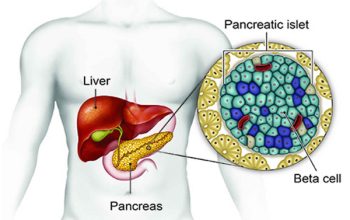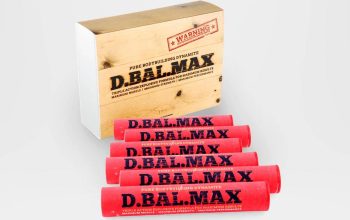All of us run errands seeking ways to stay fit, to stay healthy, and feel the best in our lives. But what we don’t understand is that at times it is a very simple need of good rest that will help our body spring back into action. Yes, we are talking about the importance of sleep which we have seemed to ignore off late. We tend to devote most of our time to our work alone or towards using mobile phones and laptops that we seldom fall asleep peacefully. Most of the time, we end up having disturbed sleep, or even worse, we suffer from insomnia. We don’t get the fact that everything in our body is interconnected. Our brain needs rest from thinking, our overall body needs rest to generate new cells that will help reduce energy and provide it to us so that we are ready and active to start the next day fresh.
Several statistics all over the world complain about a rise in the number of sleep problems amongst the present generation. Sleep problems could be anything right from insomnia to snoring — all of these are nothing but signs of a sleeping disorder called sleep apnea. It would be shocking for you all to know that nearly 18,000,000 adults in the United States of America alone and 20% of the children suffer from habitual snoring and have sleep apnea.
But that’s not all, if you have been struggling with sleeplessness or snoring then we suggest that you visit your dentist. Yes, lack of sleep or difficulty in sleeping is directly linked to your oral health.

Sleep apnea
Sleep apnea is a sleep disorder that is characterized by breathing interruptions that occur repeatedly during sleep. Apnea is caused by tissue collapses in the airway, this prevents the oxygen from reaching our lungs. Now I sleep apnea creates a disturbance in your normal sleep cycle, this will zap out your daytime energy, and this results in a disturbance in your mental performance and also ends up affecting your’s long-term health.
If sleep apnea is left untreated it can prove to be fatal as oxygen will suddenly drop, there is an increase in BP and also heart suffers strain.
Symptoms
- Absent breathing
- Loud and frequent snoring
- Forgetfulness
- The decrease in concentration and attention
- Daytime fatigue and sleepiness
- Struggling to get some air while sleeping
- Sexual dysfunction or a decrease in the libido
Apart from the above-mentioned symptoms, there are certain symptoms that women exclusively suffer from — depression, anxiety, insomnia, and several sleep disturbances like frequent wakening. Among children experiencing asthma, bedwetting, hyperactivity, and problems in academic performance are found.
There are several risk factors concerning sleep apnea — like being overweight, being male, and if you have a family history of snoring. Some other factors include:
- Having a large neck
- Sinus or nasal problems
- Large tongue a large tonsils
- If you are a post-menopausal woman
- If you are 40 years old or more
The connection between sleep apnea and oral health
A lot of patients feel surprised when their dentist asks them about their sleeping habits. Now that we know that sleep apnea is a sleeping condition that causes interruptions while breathing repeatedly throughout the night, you might wonder why these interruptions occur, right? These interruptions or pauses happen as a result of the muscles in the back of the throat becoming flaccid, the tongue becoming too large, or your jaw becoming too tiny — these cause airway obstructions. Let’s not forget that one of the first symptoms of sleep apnea can be called bruxism which is also known as teeth grinding. You see, during night times when you grind your teeth in your sleep a message goes up to your brain asking the body to wake up and take a breath. There are a lot of dental problems that can be related to sleep apnea. Let’s take a look at them, read on.
TMJ
The full form of TMJ is the temporomandibular joint. This is a disorder that goes hand-in-hand with sleep apnea. The TMJ connects the upper jaw to the lower jaw. We have two TMJ joints, one on each side of our face. Some of the symptoms of a TMJ disorder are:
- Problems while chewing
- Locked jaw– It is the difficulty while opening or closing the mouth
- Feeling pain in the head, shoulders, and neck regions
- The grinding sounds or the clicking sounds that are made by the jaw joints
- Simple jaw pain
Bruxism
It is a very fancy, yet simple name that is used to talk about grinding teeth or clenching one’s jaw. This is something that can happen at any given time, but it mostly occurs when a person has fallen asleep. Grinding teeth has several negative effects on one’s sleep. This includes waking up with headaches, feeling very unrefreshed, pain in the neck and jaw regions, etc. This grinding of teeth is known to be a night of sleep-related disorder as it causes involuntary and uncontrolled movement of the joys during sleep. It is quite possible that one will not know that they suffer from grinding teeth; However, a visit to the dentist will help them discover this when they undergo a cleaning exam.
Mouth breathing
Sleep apnea is a sleep disorder that makes a person breathes through the mouth. This mouth breathing always ends up in a dry mouth and can also lead to tooth decay. Some of the additional consequences of having a dry mouth are mouth sores, gingivitis, plaque, and any kind of periodontal disease. Some studies have reported that people with sleep apnea or affected by the periodontal disease by a rate of 62.3% and with gingivitis by a rate of 34.1%.
Sleep apnea found in children
It is very disturbing to know that even children can suffer from sleep disorders like sleep apnea. In the United States of America, nearly 4% of children aged between two and eight years suffer from sleep apnea. This is given the name of childhood sleep apnea and it comes with several health risks– Oral health problems! We all know that childhood is the time where our teeth and gums build their foundation for the rest of life, and any chances of sleep apnea will create problems in this.
Treatment of sleep apnea
If you have visited a dentist then he or she may notice certain dental problems being linked to sleep apnea and might recommend you to visit the particular doctor. Sleep apnea is diagnosed by a Doctor who will make suggestions to do certain correct treatments such as CPAP. Your dentist might help you or assist you in alleviating your dental symptoms. Your dentist might create certain behavior modification that will help to improve your sleep quality; it will help in managing your dental health, etc. Your dentist might as well perform the orthodontic treatment and even repair your teeth alignments, and provide treatments for your dry mouth condition as well.
The bottom line
Sleeping disorders have the potential of affecting health in many ways and we must understand that a good night’s sleep is very important to not just feel refreshed and energized when you wake up in the morning but also to keep a tab on your physical and mental health as well. If you have any doubts that you have a sleep apnea problem, visit your doctor or your dentist at the soonest and figure out what treatments will work best for you.


